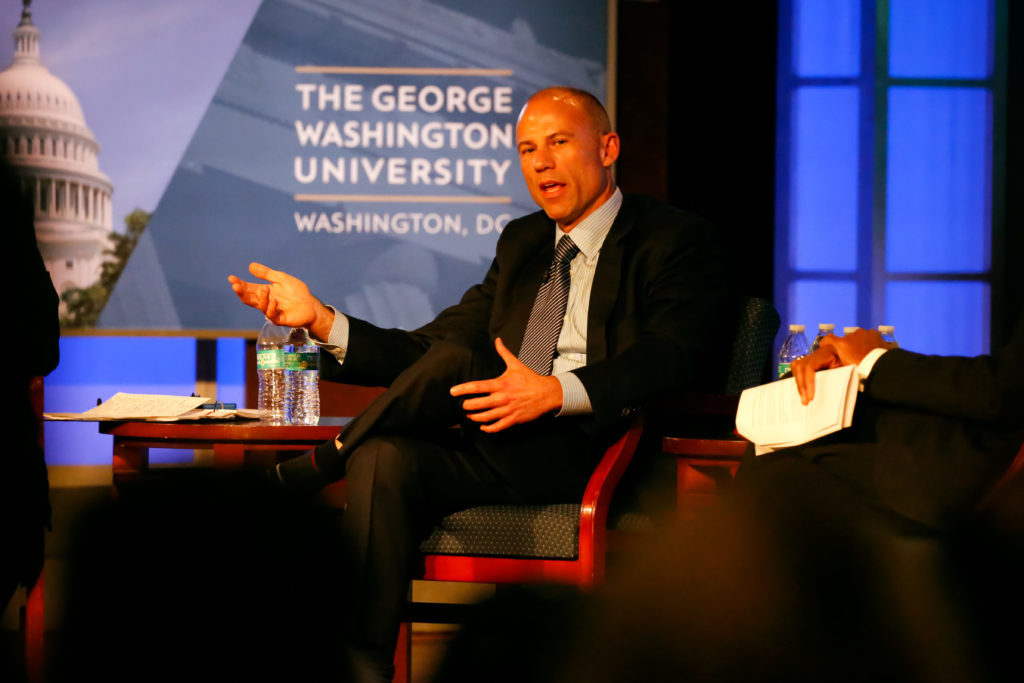The lawyer for Stormy Daniels, the adult film star who claims she had an affair with President Donald Trump, spoke to about 200 people in the Jack Morton Auditorium Wednesday about Daniels’ current defamation case against the president and the importance of open court proceedings.
Michael Avenatti, who received a law degree from GW in 1999, sat down with law professor Jonathan Turley and Law School Dean Blake Morant for an hourlong conversation hosted by the School of Media and Public Affairs and the law school.
Avenatti, who is known as an aggressive litigator and has represented several celebrities, said he started working with Daniels – whose birth name is Stephanie Clifford – because she impressed him with her intelligence and self-confidence.
“She doesn’t apologize for who she is – she owns it,” he said. “In today’s day and age, especially in Los Angeles, that’s very rare because a lot of people don’t own who they are. I was blown away.”
Daniels made headlines again Tuesday after she released a sketch of a man she said threatened her in 2011 over her alleged affair with Trump – and offered a $131,000 award for his identification. The president responded to the sketch in a tweet Wednesday morning, calling the accusation a “con job” and the man “nonexistent” – which Avenatti said were grounds for defamation.
A sketch years later about a nonexistent man. A total con job, playing the Fake News Media for Fools (but they know it)! https://t.co/9Is7mHBFda
— Donald J. Trump (@realDonaldTrump) April 18, 2018
“He called my client a liar and stated that the sketch was made up, and furthermore, effectively sated she was trying to con the American people,” he said.
Avenatti said his representation of Daniels also speaks to the importance of equal legal representation for individuals no matter their reputation.
“The importance of representing everyone is fundamental,” he said. “If we start eroding at that concept of who gets good representation, that has the ability to affect a lot of innocent people and can lead to their incarceration.”
He added that he is a proponent of open access to the courts and that cases should be tried publicly – and any efforts to hide proceedings go against what the judicial system should be.
“I am very troubled by the efforts of the other side to push this into such a proceeding because I think that would be very dangerous for a case like this if that were to be successful,” he said. “It instills fear, there is a lot of unknown and it calls into question the very process in which we resolve matters.”
When asked about the importance of trying such a high-profile case, Avenatti said the case goes far beyond simple party lines.
“It’s not about Republicans or Democrats,” he said. “It’s about telling the truth.”





